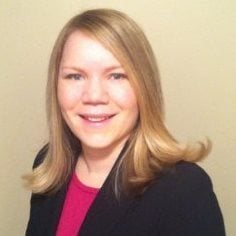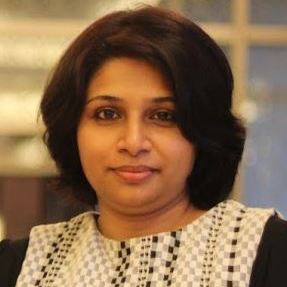Mentoring Relationships Encourage Success for Women in Tech


By Briana Curran, Vice President, Communications & Community Relations, Wells Fargo
Over 8,000 miles, not to mention key cultural differences in home and work life, separate Wells Fargo team member Prathibha Mandhula and her mentor, Holly Rollefson. Yet Rollefson, an analytics manager in enterprise data and analytics in Minneapolis, says she has long made it a priority to advocate for gender and ethnic diversity throughout her career in technology.
“Many women face similar challenges across cultures,” Rollefson says. “Prathibha and I were really able to forge a relationship and learn from each other.”
For Mandhula, a technology manager in enterprise global services in Hyderabad, India, a strong bond with a female mentor in the United States has helped bridge the geographical gap. “India still has a traditionally male-dominated culture, and that can bring challenges for women both at work and at home,” Mandhula says. “Holly, who always makes time to connect with me, has shown me how to be a thoughtful, direct and inclusive leader who can take in diverse perspectives and work past any conflicts that may arise.”
Programs Promote Career Growth
With women holding just 25 percent of computing jobs in the U.S. and accounting for only 20 percent of board members and 16 percent of executive committees globally, according to the National Center for Women and Information Technology and a 2016 Women in Financial Services report, respectively, Wells Fargo has established programs to empower women with the tools, access and resources necessary for career development and growth. Key among them is its “Women’s Team Member Network.” With a mission to connect and empower its members—all 25,000 of them, making the employee resource group one of the company’s largest—the network offers education, encouragement and influence.
“We need to do a lot more work at the top to continue to bring in diversity,” Rollefson says. “We need to look at diverse candidate pools when selecting the best person for the job. And we need to invite them to have a seat at the table, and show them that their opinions are valued.”

Rollefson is a sponsor of enterprise data and analytics’ “Global Mentoring Program,” one of several initiatives across the company that focus on bolstering gender and cultural diversity. Shynitha Shyamsunder, the program’s co-founder, says diversity mentorship is part of a larger strategy to instill a cohesive culture for the group.
“For mentorship to work, it’s important to have open discussions. We need to provide women the channels and opportunities to discuss sensitive challenges particular to them,” explains Shyamsunder, a technology relationship manager in enterprise global services.
She adds, “We wanted women mentors to inspire others to be successful and reach for leadership positions within the technology industry. It’s so critically important for women to have role models to whom they can relate.”
Avid Modjtabai, head of payments, virtual solutions and innovation, and an executive sponsor for Wells Fargo’s primary enterprise-wide women’s mentoring program, believes that creating an inclusive workplace that reflects gender equality is important to serving the needs of customers as well. “In the many roles I have had at Wells Fargo, I have been amazed every day at the strength, intelligence and dedication of women I meet across the bank,” Modjtabai says. “Our team and our business are stronger when we have a rich diversity of gender, ethnicity, backgrounds and thought.”
Mentoring Comes Full Circle
Jenna Hammer, a customer insights manager for virtual channels, still recalls the moment she realized just how far she had progressed in her career. She was at a conference when a young woman sitting next to her struck up a friendly conversation.
“We were chatting casually, and I started to share a few thoughts when I noticed how intently this young woman was asking questions,” Hammer recalls. “I realized then that I do have a unique perspective that someone else might value.”
Hammer attributes much of her professional growth to her mentor, Marie Floyd, head of digital experience design at Wells Fargo. “Marie has been a huge personal advocate who continues to push and challenge me to seek opportunities that I might not have pursued on my own.”
For Floyd, a long career in high-tech companies—where she was often the only female executive in the room—led her to mentor other women. “Many women are their family’s primary caregiver and need to excel at juggling work-life balance,” Floyd says. “And often, they have to work harder just to get recognized. It’s a lot of pressure, which is why mentoring is so important.”
Her advice to other women: carefully select projects that offer opportunities for learning and growth. Hammer’s tip is to pursue mentorships, even if they are informal or in diverse areas of interest. “I’ve found a confidence—both as a leader of my team and as a contributor to the company as a whole,” Hammer says. “It’s something that I want to instill in others—including mentees of my own some day.”
Sponsored by
